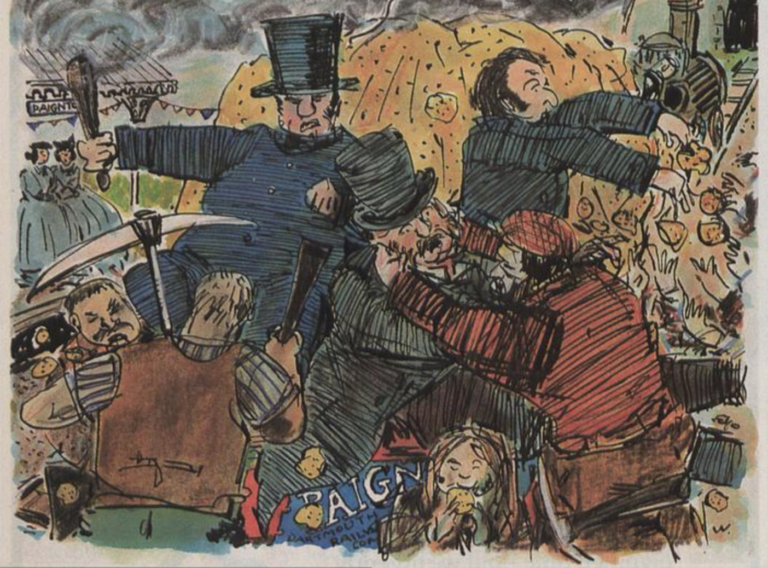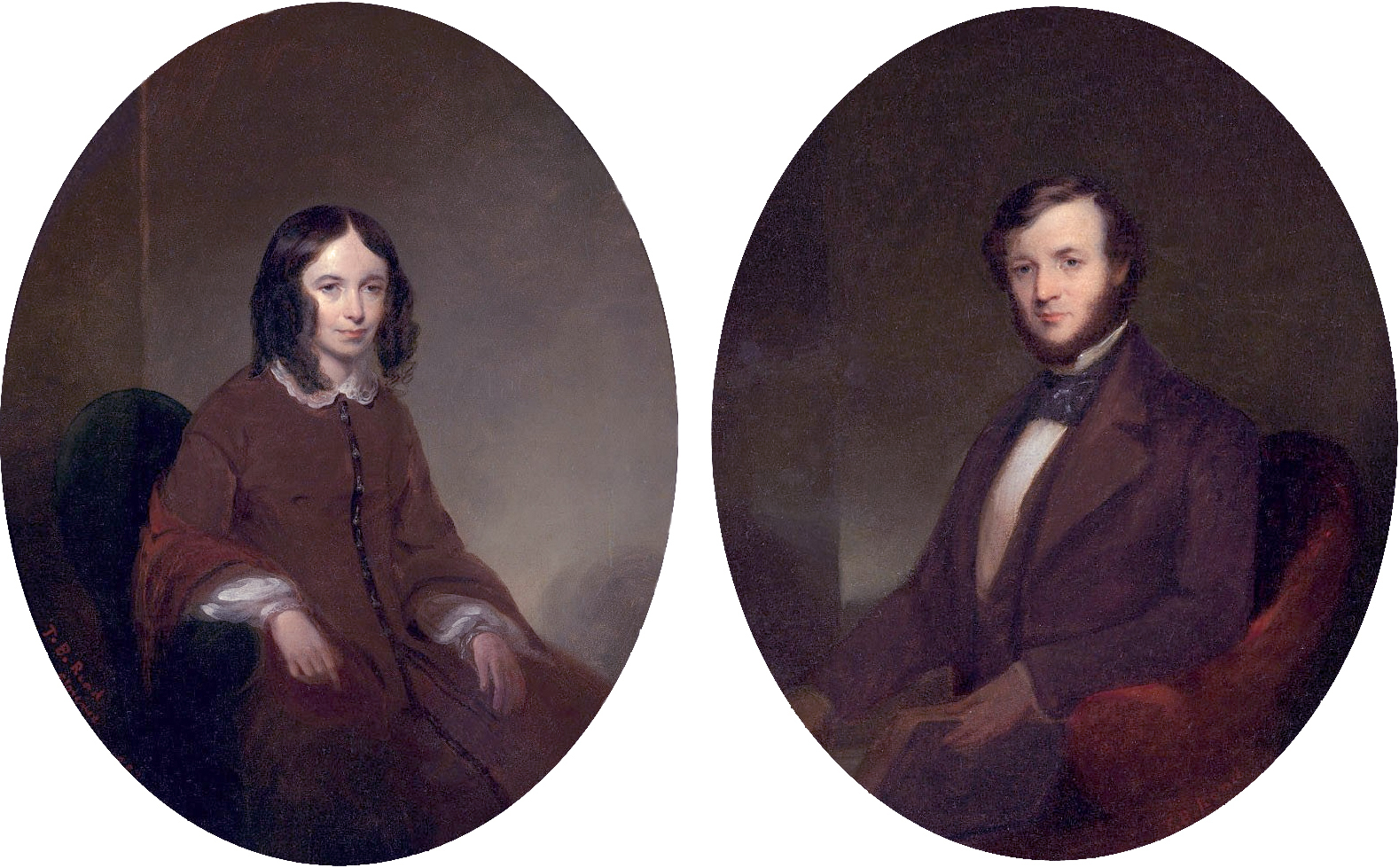
1844
The assassination of Mormon prophet Joseph Smith
In 1820 Joseph Smith (1805-44) experienced the first of a series of visions that would lead to him becoming the founder of the Church of Jesus Christ of Latter-Day Saints. He claimed that during one of these visions an angel named Moroni revealed the location of a buried treasure containing a book of golden leaves and twin stones that would allow him to interpret the contents. He later recovered these books and dictated the translation which became The Book of Mormon. His remarkable religious claims led to him, and his growing number of followers, being forced to relocate a number of times. Many times they were met with violence and Smith himself was tarred and feathered in Ohio; on other occasions early Mormons were arrested and thrown in jail. By 1844 Smith had established his headquarters in the new city of Nauvoo where his teachings aroused opposition from both locals and long-time members of his own church. Smith ordered the destruction of a printing press run by his rivals and called out his own paramilitary force, the Nauvoo Legion, to put down resistance. On June 23, 1844 Joseph Smith and his brother Hirum were arrested and charged with treason. Smith reportedly said at the time: “I am going like a lamb to the slaughter; but I am calm as a summer’s morning. I have a conscience void of offence towards God, and towards all men. I shall die innocent, and it shall yet be said of me. ‘He was murdered in cold blood’”.
Four days later a mob, with faces blackened for disguise, attacked the jail. A near-contemporary account reads:
Immediately there was a little rustling at the outer door of the jail, and a cry of surrender, and also a discharge of three or four firearms followed instantly. The doctor glanced an eye by the curtain of the window, and saw about a hundred armed men around the door. It is said that the guard elevated their firelocks, and boisterously threatening the mob discharged their fire-arms over their heads. The mob encircled the building, and some of them rushed by the guard up the flight of stairs, burst open the door, and began the work of death, while others fired in through the open windows.
In the meantime Joseph, Hyrum, and Elder Taylor had their coats off. Joseph sprang to his coat for his six-shooter, Hyrum for his single barrel, Taylor for Markham’s large hickory cane, and Dr. Richards for Taylor’s cane. All sprang against the door, the balls whistled up the stairway, and in an instant one came through the door.
Joseph Smith, John Taylor and Dr. Richards sprang to the left of the door, and tried to knock aside the guns of the ruffians.
Hyrum was retreating back in front of the door and snapped his pistol, when a ball struck him in the left side of his nose, and he fell on his back on the floor saying, “I am a dead man!” As he fell on the floor another ball from the outside entered his left side, and passed through his body with such force that it completely broke to pieces the watch he wore in his vest pocket, and at the same instant another ball from the door grazed his breast, and entered his head by the throat; subsequently a fourth ball entered his left leg.
A shower of balls was pouring through all parts of the room, many of which lodged in the ceiling just above the head of Hyrum.
Joseph reached round the door casing, and discharged his six shooter into the passage, some barrels missing fire. Continual discharges of musketry came into the room. Elder Taylor continued parrying the guns until they had got them about half their length into the room, when he found that resistance was vain, and he attempted to jump out of the window, where a ball fired from within struck him on his left thigh, hitting the bone, and passing through to within half an inch of the other side. He fell on the window sill, when a ball fired from the outside struck his watch in his vest pocket, and threw him back into the room.
After he fell into the room he was hit by two more balls, one of them injuring his left wrist considerably, and the other entering at the side of the bone just below the left knee. He rolled under the bed, which was at the right of the window in the south-east corner of the room.
While he lay under the bed he was fired at several times from the stairway; one ball struck him on the left hip, which tore the flesh in a shocking manner, and large quantities of blood were scattered upon the wall and floor.
When Hyrum fell, Joseph exclaimed, “Oh dear, brother Hyrum!” and opening the door a few inches he discharged his six shooter in the stairway (as stated before), two or three barrels of which missed fire.
Joseph, seeing there was no safety in the room, and no doubt thinking that it would save the lives of his brethren in the room if he could get out, turned calmly from the door, dropped his pistol on the floor, and sprang into the window when two balls pierced him from the door, and one entered his right breast from without, and he fell outward into the hands of his murderers, exclaiming. “O Lord, my God!”











